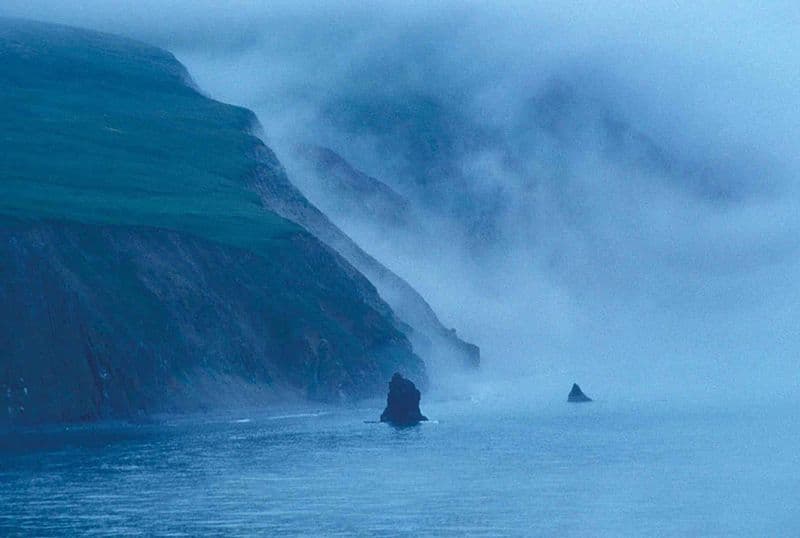Poem of the Day: ‘Fog’
A modern poet while only partially a modernist, Robert Hillyer wanted a ‘conservative poetry,’ dubbing himself ‘a conservative and religious poet in a radical and blasphemous age.’

Robert Hillyer (1895–1961) is one of the unfairly fading American poets who deserve to live in poetry readers’ collective memory. Last summer we ran his poem “Early in the Morning,” and today we add “Fog,” a poem from 1921.
Like Edward Thomas’s “Adlestrop,” which was the Sun’s Poem of the Day earlier this summer, “Fog” matches Hillyer’s “Early in the Morning” as an example of poetry that seeks what Wordsworth called “spots of time.” John Henry Newman once described what he called the stained imagination, injured by some witnessed vulgarity, like a teenager’s encounter with violent pornography. A spot of time is, in a sense, the opposite: a sight of nature that endures in memory as a redemptive presence, repairing the mind.
As an undergraduate, Hillyer helped form a group known as “the Harvard poets” with his classmates John Dos Passos and E.E. Cummings. He went to Europe in 1917, shortly after graduating, to serve in an international ambulance corps before America entered the war. Hillyer would return to teach at Harvard for many years afterward, writing eight books of poetry and winning the Pulitzer Prize in 1934 for his collected verse. A modern poet while only partially a modernist, he wanted a “conservative poetry,” dubbing himself “a conservative and religious poet in a radical and blasphemous age.”
“Early in the Morning” stays entirely within its moment (except for one ironic nod from the older narrator), but “Fog” has a bigger conclusion to draw from its description of being on a sailboat in the fog. “Where does the sea end and the sky begin?” the poem asks, as a fogbank seals the quiet boat in place. Something more, the line between life and death, is just as uncertain: “The dead are here. / We are not quite alone,” the poem ends. And we are there with the poet in that ghostly fog.
Fog
by Robert Hillyer
Where does the sea end and the sky begin?
We sink in blue for which there is no word.
Two sails, fog-colored, loiter on the thin
Mirage of ocean.
There is no sound of wind, nor wave, nor bird,
Nor any motion.
Except the shifting mists that turn and lift,
Showing behind the two limp sails a third,
Then blotting it again.
A gust, a spattering of rain,
The lazy water breaks in nervous rings.
Somewhere a bleak bell buoy sings,
Muffled at first, then clear,
Its wet, grey monotone.
The dead are here.
We are not quite alone.
___________________________________________
With “Poem of the Day,” The New York Sun offers a daily portion of verse selected by Joseph Bottum with the help of the North Carolina poet Sally Thomas, the Sun’s associate poetry editor. Tied to the day, or the season, or just individual taste, the poems are drawn from the deep traditions of English verse: the great work of the past and the living poets who keep those traditions alive. The goal is always to show that poetry can still serve as a delight to the ear, an instruction to the mind, and a tonic for the soul.
